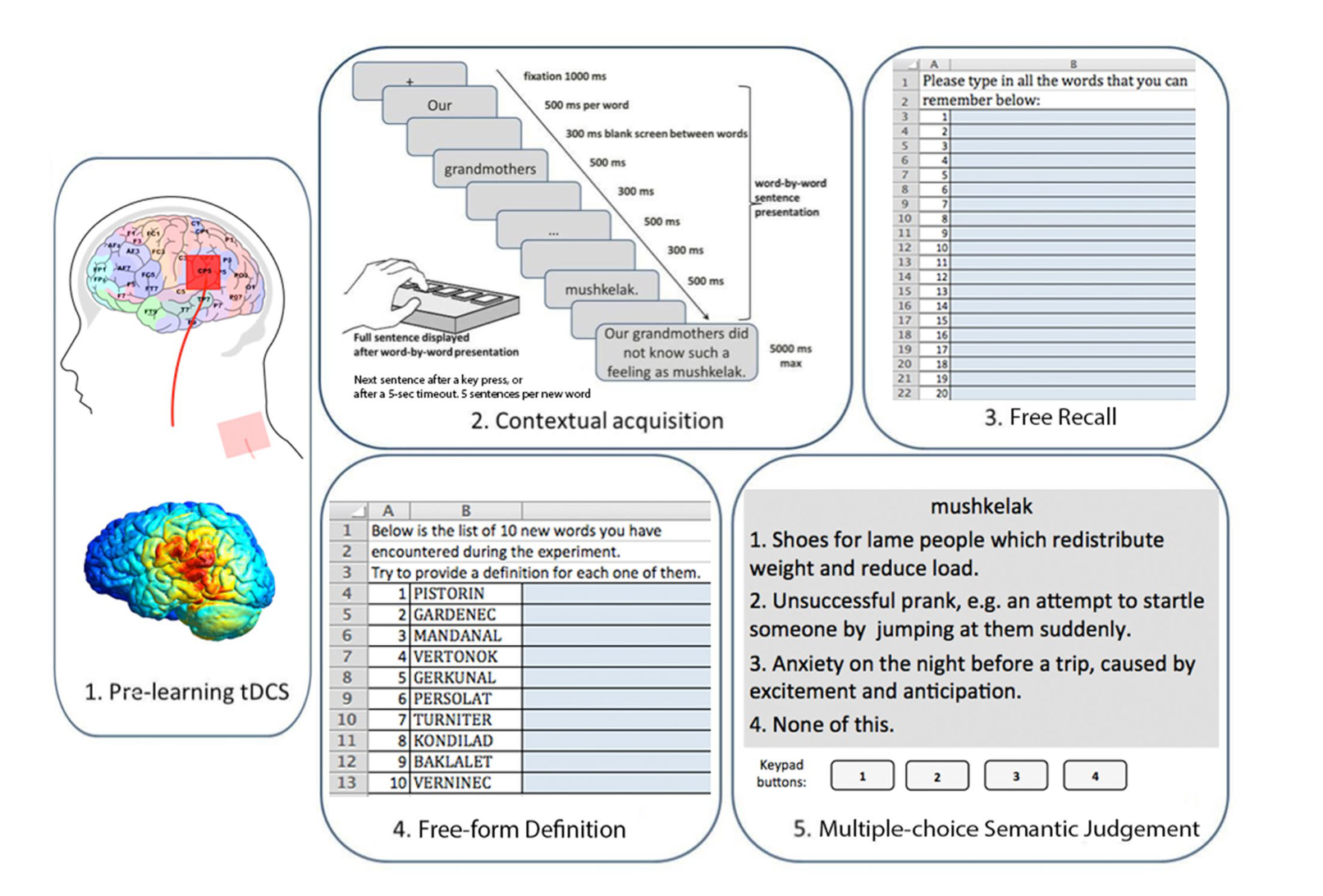Acquisition of concrete and abstract words is modulated by tDCS of Wernicke’s area
Acquisition of concrete and abstract words is modulated by tDCS of Wernicke’s area
Researchers from the Laboratory of Behavioural Neurodynamics at St Petersburg University have studied how different types of transcranial direct current stimulation (tDCS) of the brain affect the acquisition of new words. The research outcomes have been published in the journal Scientific Reports.
Previous behavioural and neuroimaging research suggested distinct cortical systems involved in processing abstract and concrete semantics; however, there is a dearth of causal evidence to support this. To address this, we applied anodal, cathodal, or sham (placebo) tDCS over Wernicke’s area before a session of contextual learning of novel concrete and abstract words (n=10 each), presented five times in short stories. Learning effects were assessed at lexical and semantic levels immediately after the training and, to attest any consolidation effects of overnight sleep, on the next day.

We observed successful learning of all items immediately after the session, with decreased performance in Day 2 assessment. Importantly, the results differed between stimulation conditions and tasks. Whereas the accuracy of semantic judgement for abstract words was significantly lower in the sham and anodal groups on Day 2 vs. Day 1, this performance drop was not observed in the cathodal group. Furthermore, between-group analysis showed an overall better performance of both tDCS groups over the sham group, particularly expressed for abstract semantics and cathodal stimulation. In sum, the results suggest overlapping but diverging brain mechanisms for concrete and abstract semantics and indicate a larger degree of involvement of core language areas in storing abstract knowledge.
